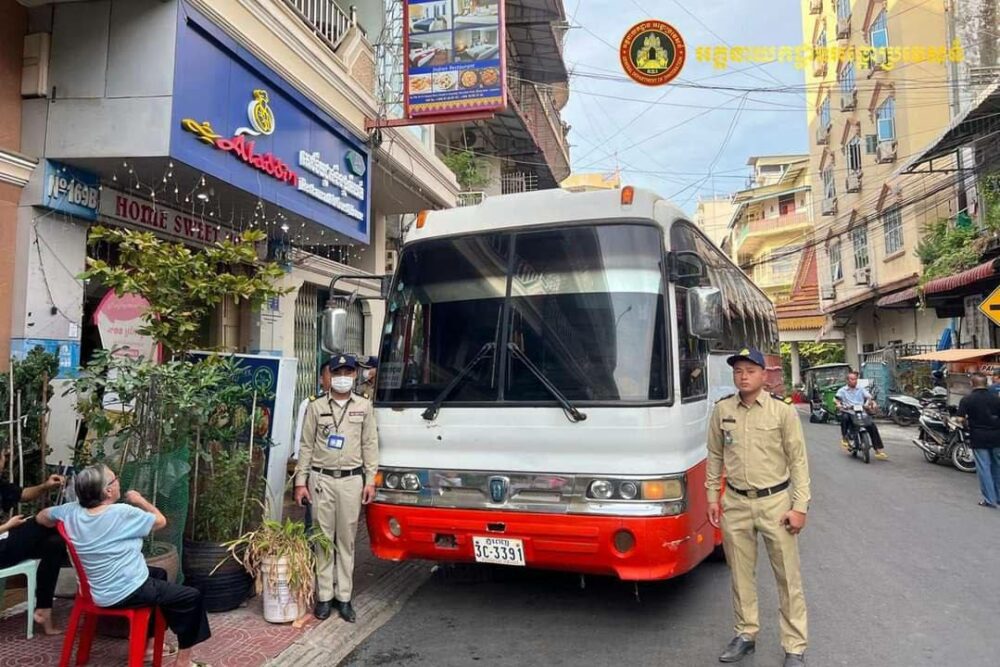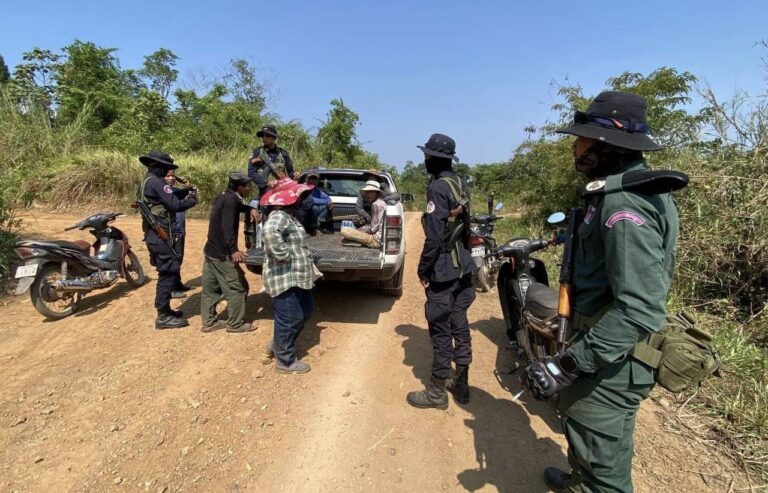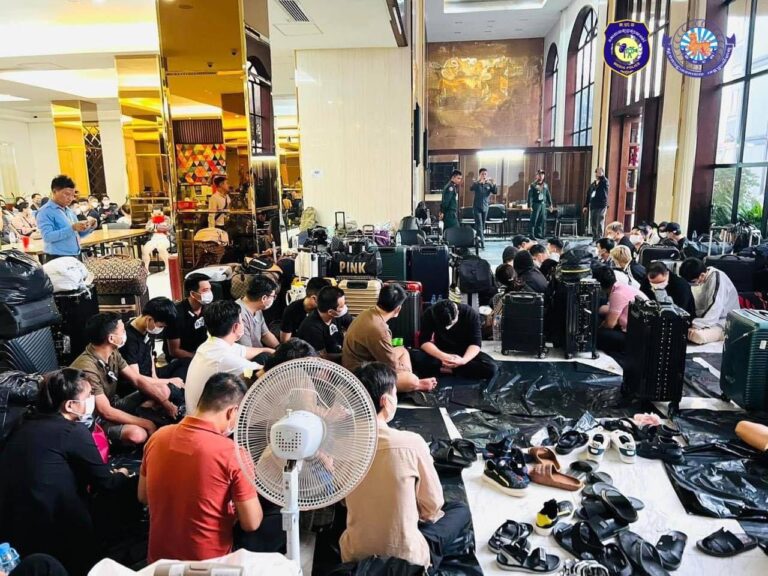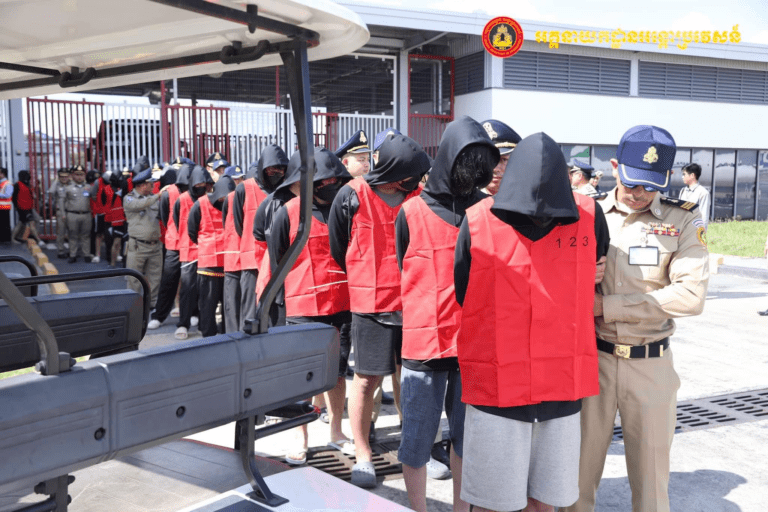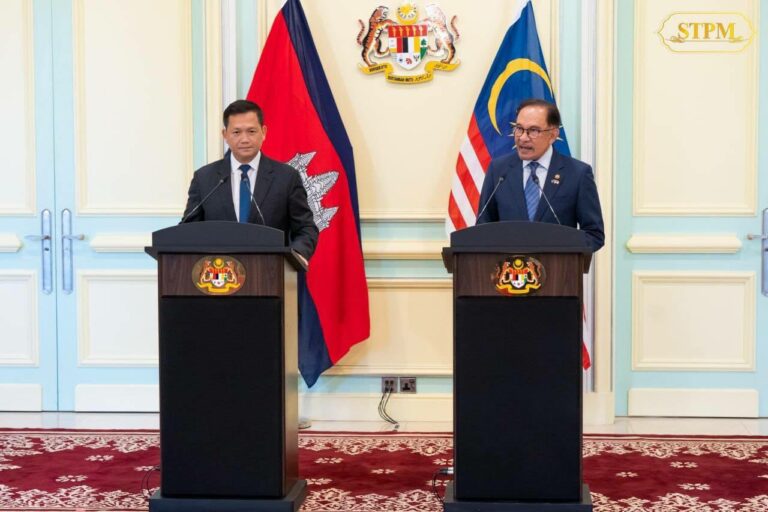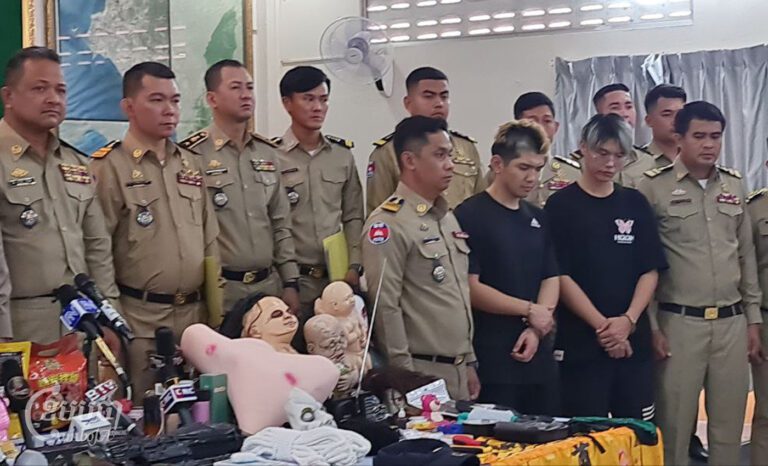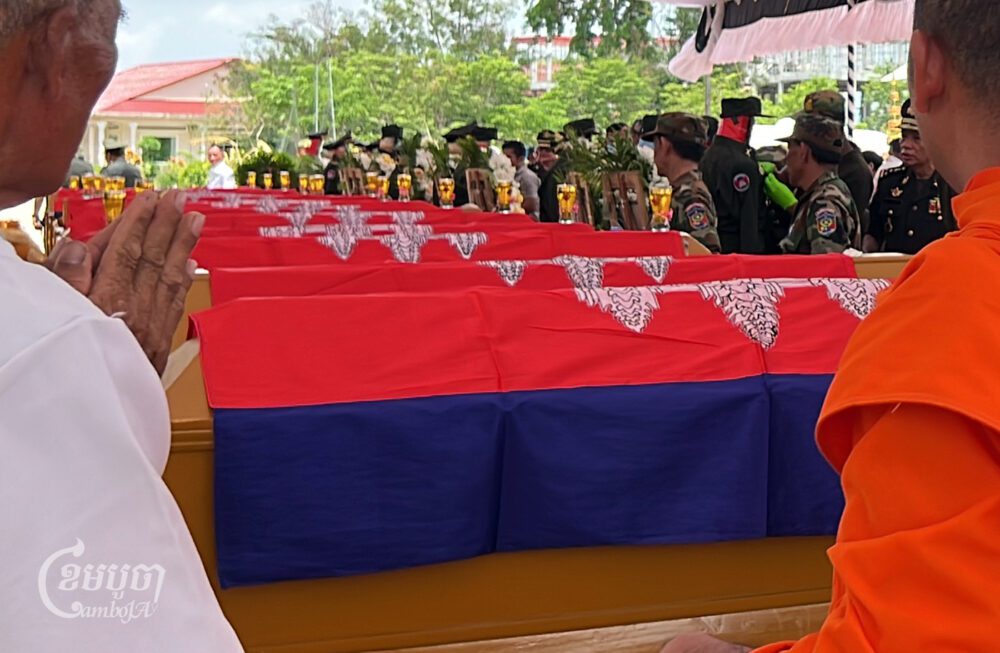The General Department of Immigration arrested two Bangladeshi citizens on human trafficking charges on January 11, following a search of two locations in Phnom Penh. Authorities also found 51 Bangladeshis victims, four Indian victims and one Sri Lankan victim.
Sok Veasna, director general of immigration, told CamboJA News Wednesday that authorities received a complaint on December 14 about the situation, and also received a complaint from the Bangladeshi Embassy. Officials continue to search for four other foreign suspects in the case.
“[The two arrested] are suspected of illegal human trafficking while crossing the border in and out of Cambodia,” he said. “For the victims, we are facilitating their return to their home countries. We have sent them to the Ministry of Social Affairs, which is cooperating with an NGO to house them.”
The victims were handed over to the NGO Caritas Cambodia, according to a Wednesday post on the General Department of Immigration’s Facebook page, which is no longer visible as of Thursday. The two locations officials searched were a hotel in Wat Phnom, Daun Penh district as well as another guesthouse in Phnom Penh.
The post stated that the victims were brought to Cambodia, and the suspected human trafficking operation had plans to bring some of the victims, those who did not speak English and were unable to use computers, to Thailand and Malaysia. The two arrested were suspected of being the “masterminds” involved in a case of illegal immigration, according to the post.

One photo in the post shows officials standing in front of a large bus parked next to Aladdin Restaurant and Guesthouse, with a sign that reads “home sweet home.” A CamboJA reporter went to the location Wednesday and spoke to a 50-year-old tuk tuk driver, who asked not to be named due to safety concerns. The driver said he drove people he believed to be Bangladeshi back and forth from this location to De Palace Hotel.
“I used to drive them around, including bringing them to the airport and to Phsar Chas [Market] and I also brought them to do construction work near the Ministry of Culture, near Prince Palace,” he said. “I often saw them walking as a group and hanging out at the riverside.”
Most appeared to be in their 20s and sometimes he saw them talking on their phones. Use of force is just one means of trafficking, according to the UN, and human traffickers can also use deception, coercion, or abuse of power or position of vulnerability to exploit people for profit.
The tuk-tuk driver said first police made arrests at De Palace Hotel before coming to Aladdin Restaurant and Guesthouse, where a large bus picked people up. After the arrests, the buildings have been locked up, he said.
From outside their front doors, both buildings appeared to be empty on Wednesday morning.
A woman who lives near Aladdin Restaurant and Guesthouse also spoke to a CamboJA reporter Wednesday, and asked not to be named for fear of consequences for speaking with the media. She said officials arrived around a week ago and she has seen police at this location for nearly a week.
“[The authorities] came to the building and cracked down very quietly,” she said. “We did not know what [crime] they were dealing with here.”
The phone number for Aladdin Restaurant and Guesthouse listed on its sign was disconnected when a CamboJA reporter called on Thursday. A phone number found online for De Palace Hotel was also disconnected.
Wat Phnom commune chief Hao Somnith said he heard the hotel had closed but may have reopened again.
The embassies of India, Bangladesh and Sri Lanka did not respond to emailed requests for comment.
Chou Bun Eng, permanent vice-chair of the National Committee for Counter Trafficking, said that Cambodia does not deny that human trafficking is an issue in the country and her office is looking for ways to cooperate with other countries to crack down more effectively on the crime. Because scamming involves online communication, sometimes crackdowns and punishments for the crime can be complicated as not all of the parties are present during police searches, she said.
“Cambodia is influenced by others from outside [the country] because the crimes that happened in Cambodia are not committed by Cambodians, but it is foreigners who commit the crimes against other foreigners and use Cambodia as the location for their crimes,” she said.
A September UN report noted that Cambodia has shifted from a place of origin for trafficking victims to a destination where foreign victims are trafficked to. In June, the US State Department’s Trafficking in Persons Report ranked Cambodia as a Tier 3 country, the lowest ranking, for the second year in a row, in part for not making “serious and sustained” efforts to eliminate severe forms of trafficking. The Cambodian government has repeatedly said it is cracking down on human trafficking, after first denying the growth of the cyber scam industry in the country.
The UN report stated that at least 100,000 people have been forced to carry out online scams in Cambodia. In a September interview with CamboJA, Bun Eng said it “was difficult to accept” the number, claiming that the report included the figure without evidence.
On Wednesday, Bun Eng told CamboJA News that there have been 152 recorded cases of forced labor, human trafficking and sex trafficking in the country in the past “10 or 11 months.”
Am Sam Ath, operations director at the human rights group Licadho, said those involved in civil society are concerned about human trafficking in recent years, including its impacts on investment, development and tourism.
“Our law enforcement is still too loose so [Cambodia] is a good place for opportunists that commit crimes that come into Cambodia. Secondly, we need to eliminate corruption and nepotism,” he said. “People involved in human trafficking must be brought to justice.”


